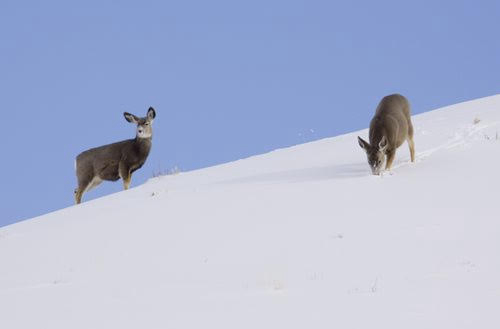DNR cautions anglers about ice dams, sudden changes in river flow
The Department of Natural Resources urges anglers to use caution when planning trips on Michigan’s rivers and streams this winter. Winter fishing for trout and steelhead can be challenging and rewarding, but cold air temperatures can cause sudden and significant changes in flows in rivers and streams.
According to DNR fisheries biologist Kyle Kruger, temperature effects are most pronounced at times of very cold air temperatures, particularly below 10 degrees Fahrenheit, especially if areas with extreme nighttime cold temperatures alternate with warmer days.
“When nights are very cold and clear, rivers can see extensive freezing and often ice dams form,” Kruger said. “These dams cause water to back up the streams, reducing flow downstream, and can be quickly released if temperatures rise above freezing during the daytime hours. This can cause unpredictable and often sudden flow changes.”
Kruger said this phenomenon is noticeable on the middle to lower Au Sable River in Michigan’s northern Lower Peninsula. “The middle Au Sable River is particularly susceptible to the influences of cold weather, more so than some of the state’s other winter steelhead streams,” he added.
Extensive ice damming and anchor ice formation can occur below Mio Dam (Oscoda County), particularly in the area around McKinley, during periods when air temperatures are below 10 degrees Fahrenheit. Typically, these ice-damming events cause unusually low flows to be seen below Foote Dam (Iosco County).
“We want anglers to remember that the colder the weather, the more unpredictable flows will be in some of Michigan’s rivers,” Kruger said. “Please use appropriate caution if you’re planning fishing trips during these periods.”
DNR fisheries staff strongly recommends that when planning for a winter fishing trip to one of the state’s streams, anglers should check on river conditions and weather forecasts locally. Air temperatures below 10 to 15 degrees Fahrenheit are likely to create conditions for more difficult fishing, particularly from a boat.
Flow and water temperature data for many of Michigan’s larger steelhead streams have real-time gauges which can be checked online through the U.S. Geological Survey. There also are many weather-related websites that can provide forecasts for anticipated air temperatures that can help you better plan for expected conditions.
Take advantage of Michigan’s world-class fishing opportunities – even in winter! Start planning a trip at www.michigan.gov/fishing.





